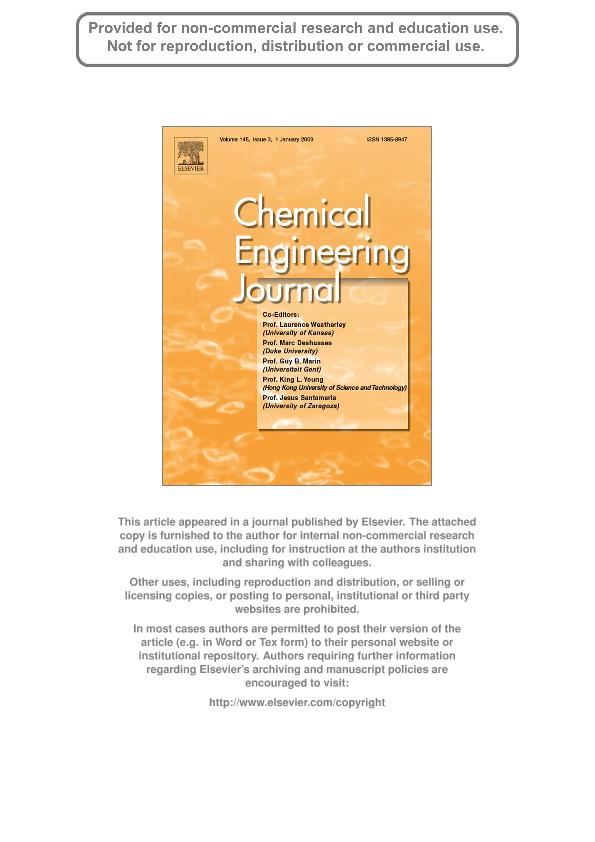Artículo
Comment on the paper "Diffusion and adsorption selectivities of hydrocarbons over FCC catalysts" by A.M. Ávila, C.M. Bidabehere and U. Sedran [Chem. Eng. J. 132 (2007) 67-75]
Fecha de publicación:
01/2009
Editorial:
Elsevier Science Sa
Revista:
Chemical Engineering Journal
ISSN:
1385-8947
Idioma:
Inglés
Tipo de recurso:
Artículo publicado
Clasificación temática:
Resumen
In a letter by Kärger [1] about our paper on the assessment of the diffusivities in fluid catalytic cracking (FCC) catalysts [2], it is mentioned that diffusivities calculated by different methods (macroscopic in one case, or from pulsed field gradient (PFG) NMR technique in the other) are different. It is also pointed out that the results of diffusivities for a given compound obtained from different macroscopic techniques are not explained satisfactorily. Both facts are true. We understand that the letter is not only a valuable contribution to the field, considering its large and laborious data collection, but also an incentive for the search of a better comprehension of the mechanisms controlling the FCC process. Most importantly, the differences observed should not hamper experiments with macroscopic techniques nor lead to disregard results suspected of mass and/or heat transfer limitations. It is important to recognize them as enriched by other type of information, and that they become necessary as design tools. By these reasons, and considering that not too much can be added to the details depicted in Ref. [1], we believe it would be useful to clarify some issues, mainly pointing to a distinct approach in the interpretation of the data.
Palabras clave:
Adsorption
,
Fluid Catalytic Cracking
,
Hydrocarbons
,
Crec Riser Simulator
Archivos asociados
Licencia
Identificadores
Colecciones
Articulos(INCAPE)
Articulos de INST.DE INVEST.EN CATALISIS Y PETROQUIMICA "ING. JOSE MIGUEL PARERA"
Articulos de INST.DE INVEST.EN CATALISIS Y PETROQUIMICA "ING. JOSE MIGUEL PARERA"
Citación
Bidabehere, Claudia María; Avila, Adolfo María; Sedran, Ulises Anselmo; Comment on the paper "Diffusion and adsorption selectivities of hydrocarbons over FCC catalysts" by A.M. Ávila, C.M. Bidabehere and U. Sedran [Chem. Eng. J. 132 (2007) 67-75]; Elsevier Science Sa; Chemical Engineering Journal; 145; 3; 1-2009; 525-527
Compartir
Altmétricas




